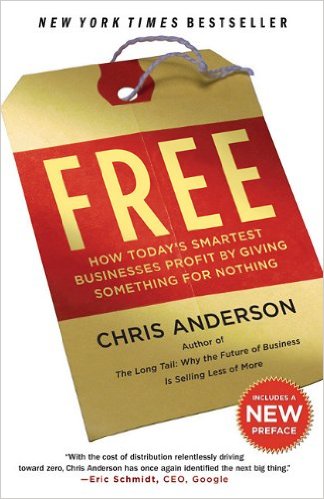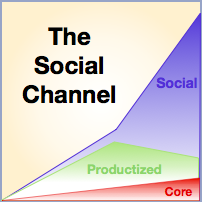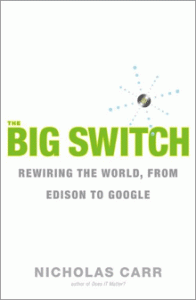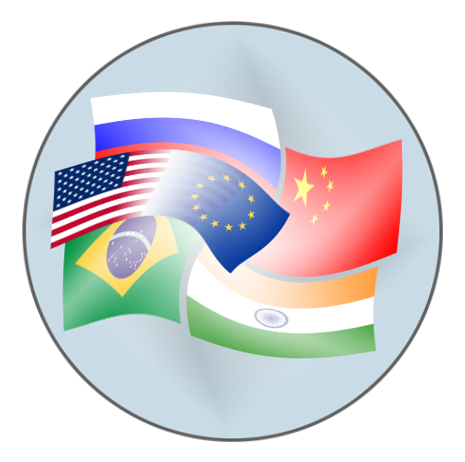
Africa [credit: Mapswire.com]
Africa is a nascent innovation powerhouse, and its leadership will become increasingly obvious during the coming decades, but the seeds are already visible as this post reveals: Africa’s population is exploding, and its young people are adopting tech alternatives to countries’ long-insufficient health, education, and financial infrastructure.
If you’ve been interested in international development for long, you have seen many prognostications about “Africa rising” over the years only to see them fade into oblivion. Predicting profound economic shifts is like predicting earthquakes; you study the driving forces and your algorithms crunch the data.
That isn’t stopping Helga Stegmann. She has led “user experience” agency Mantaray since 2006, and she gave a riveting talk last week in Chicago hosted by partner agency BoldInsight. In my experience, user experience folks rarely have their hands on the pulse of disruptive economic change, but the reason she is an exception reflects that Africa’s economic transformation is happening at the grassroots level (as with most revolutions), and her key orientation is user experience design, so researching users across rapidly evolving interfaces in devices. Follow along with my notes of her remarks […]
 Behavioral economics autonomy and ethics is a thought experiment on how to approach “doing good” when applying the emerging practice of behavioral economics. Along with big data analytics and cognitive science, behavioral economics affords businesses, governments and other organizations unprecedented impact on individuals’ behavior, even without their consent or awareness. This arouses serious ethical and social dilemmas. Behavioral economics autonomy and ethics is a thought experiment on how to approach “doing good” when applying the emerging practice of behavioral economics. Along with big data analytics and cognitive science, behavioral economics affords businesses, governments and other organizations unprecedented impact on individuals’ behavior, even without their consent or awareness. This arouses serious ethical and social dilemmas.
Every behavioral economics practitioner I’ve met has emphasized the importance of using its practice “for good” in order to help people. Like all other human endeavors, however, “for good” is open to interpretation, so I’ll apply my experience with ethnographic and behavioral analysis of social media to reflect on what “for good” might mean in light of individual and group autonomy.
I also hope this Noodle will be food for thought for executives who hire behavioral economics firms as well as all of us who are invariably its subject. In a similar vein, most designers I know are committed to using design principles to improve user experience, and there’s considerable overlap between design and behavioral economics.
Behavioral economics is […]
How Free Things Are Disrupting Businesses + Radical Innovation + Guide to Free Business Models
Book Review: Free/Chris Anderson
 Free is an indispensable introduction to the disruption of “a product for a price,” one of the Industrial Economy’s key constructs. It is rich with examples of many of the pricing innovations and business models with which you’re probably familiar but haven’t thought about in depth. Many of its examples have to do with digital products, which are inherently disruptive because their distribution cost is close to zero, and they can displace legacy analog products. Free is an indispensable introduction to the disruption of “a product for a price,” one of the Industrial Economy’s key constructs. It is rich with examples of many of the pricing innovations and business models with which you’re probably familiar but haven’t thought about in depth. Many of its examples have to do with digital products, which are inherently disruptive because their distribution cost is close to zero, and they can displace legacy analog products.
Free is important and useful for two reasons beyond pricing and business model innovation: it contains a good dollop of behavioral economics with regard to pricing, and it gives numerous examples for thinking beyond the two-party market model that dominated the Industrial Economy, buyer and seller. As Anderson repeatedly shows, in digitally networked markets spawned by the Internet, firms put themselves at significant risk when they don’t adopt a networked ecosystem mindset. For example:
When something becomes free, […]
Digital Transformation’s Personal Issue reveals personal treatment to be the key to breakthrough customer experience, and it shows how digital social spaces enable Chief Digital Officers to use personal treatment to create more profit. Before they arrive, though, they need to lead their organizations through the Personal Issue. 
The Personal Issue refers to a perceived conflict between empowered customers and profit-starved companies. Digital social technologies are enabling customers to “re-personalize” business and society because their online interactions among themselves are personal, which is changing their expectations of all interactions.
However, businesses resist treating customers personally because they fear cost and inefficiency. They don’t understand the digital social economics of treating customers personally online, at scale.
Meanwhile, the missions of chief digital officers (CDOs) and chief customer officers (CCOs) are creating bold new “customer experience” and profits by using digital technologies to transform organizations, brands and businesses. They will fulfill their missions far more quickly and completely by using the key.
[…]
TheSocial Business Enabler of Digital Transformation reveals how social technologies have changed the economics of interacting and collaborating, and it presents four ways that Chief Digital Officers can use social to lower risk and boost returns of digital transformation.
![The Social Business Enabler of Digital Transformation [CDO Guide to Social Business Part1]](http://rollyson.net/wp-content/uploads/2013/06/CDO_socbus_1_main2.png) Social business competency is pivotal to digital transformation because it combines four unusual characteristics. First, it makes interacting and collaborating an order of magnitude faster and less costly than current processes; second, few organizations understand how to use social business to interact with key customers to boost profit, so leaders enjoy rare advantage; third, when compared to ecommerce, mobile and big data & analytics investments, social business shows results quickly and costs less. Lastly, social business reveals what stakeholders really think when organizations aren’t in the room, so it’s effective for due diligence and “requirements analysis” for ecommerce, mobile and big data investments. Social business competency is pivotal to digital transformation because it combines four unusual characteristics. First, it makes interacting and collaborating an order of magnitude faster and less costly than current processes; second, few organizations understand how to use social business to interact with key customers to boost profit, so leaders enjoy rare advantage; third, when compared to ecommerce, mobile and big data & analytics investments, social business shows results quickly and costs less. Lastly, social business reveals what stakeholders really think when organizations aren’t in the room, so it’s effective for due diligence and “requirements analysis” for ecommerce, mobile and big data investments.
As Social Business Enabler of Digital Transformation explains, social business has a two-fold value proposition for Chief Digital Officers: they can use social directly to drive reputation, innovation and […]
 I covered the Federal Reserve Bank of Chicago Economic Forecast last week, where all speakers issued this refrain: “More of the same.” Key economic indicators have been stuck in neutral—the proverbial “sideways” movement—so the consensus in the room was one of faint frustration tempered by gratitude. Everyone had lived through worse. I covered the Federal Reserve Bank of Chicago Economic Forecast last week, where all speakers issued this refrain: “More of the same.” Key economic indicators have been stuck in neutral—the proverbial “sideways” movement—so the consensus in the room was one of faint frustration tempered by gratitude. Everyone had lived through worse.
The current “recovery” is underperforming any other in recent memory according to many measures, especially employment.
The conference was very well organized and featured expert presenters. Reading between the lines, I perceive significant opportunity that will surprise most people. After my notes of speakers’ remarks, I’ll share my thoughts on 2013’s opportunity that is evident when one regards “the economy” from a different point of view.
Everyone wonders what kind of presents we will open in 2013 (right).
[…]
Social Channel One: Building Post-Product Relationships with Customers is how to Build Brands
 Pioneering brands are building post-product customer relationships in the social channel because they realize that product features are copied easily and serve as weak differentiators, which leads to pervasive commoditization. Moreover, people’s preferences for individualized information dealt mass media a lethal blow, and products firms will have a similar fate. Here’s why products will become extinct and how to guide your brand in building post-product customer relationships and profits. Pioneering brands are building post-product customer relationships in the social channel because they realize that product features are copied easily and serve as weak differentiators, which leads to pervasive commoditization. Moreover, people’s preferences for individualized information dealt mass media a lethal blow, and products firms will have a similar fate. Here’s why products will become extinct and how to guide your brand in building post-product customer relationships and profits.
I have predicted for years that mass customization would be the fate of “products,” and social business is bearing this out in spades, so here I’ll delve into how impersonal “products” will be rejected by customers in 5-15 years. More important, CMOs and brand stewards who appreciate this transformation will enjoy unusual advantage, and smart ones will prepare for it now. Brands that don’t get it will simply perish, and no one will even notice except their producers and vendors. Just think about the local papers and TV stations you have known.
This is Part One […]
Curmudgeonly Looking into the Past to Divine the Future—That Nagging Privacy Issue—Debunking the Elephant
 The Big Switch is a valuable book that reflects what has become Nick Carr’s trademark role, heckling IT and Web enthusiasts, albeit from good seats. Carr seems to relish his role as “the fly in the ointment” of the idealistic IT-enabled world that Web missionaries espouse. Although this book has shortcomings, I recommend it for two reasons. First, Carr makes a convincing and useful argument that the “electrification” of business and society (the Edison part) has valuable lessons for the “computerization” transformation of business and society (the Google part) that is currently unfolding. This parallel provides context to think about some of the disruptions around your business, society and career. Second, Carr raises serious questions about possible privacy implications of computerization. He palpably weighs in on the dark side and seems to want the world to change course from the “googlization of life.” If you haven’t read The Long Tail, I would read these books in proximity because they are very complementary and both quick, important reads. The Big Switch is a valuable book that reflects what has become Nick Carr’s trademark role, heckling IT and Web enthusiasts, albeit from good seats. Carr seems to relish his role as “the fly in the ointment” of the idealistic IT-enabled world that Web missionaries espouse. Although this book has shortcomings, I recommend it for two reasons. First, Carr makes a convincing and useful argument that the “electrification” of business and society (the Edison part) has valuable lessons for the “computerization” transformation of business and society (the Google part) that is currently unfolding. This parallel provides context to think about some of the disruptions around your business, society and career. Second, Carr raises serious questions about possible privacy implications of computerization. He palpably weighs in on the dark side and seems to want the world to change course from the “googlization of life.” If you haven’t read The Long Tail, I would read these books in proximity because they are very complementary and both quick, important reads.
As […]
Regina Herzlinger Keynotes Chicago Healthcare Executives Forum 35th Anniversary
Five-Point Prescription for U.S. Health Care—Involving Patients
 CHEF Chicago’s hospital executives listened raptly to Dr. Regina Herzlinger‘s impassioned message for transforming U.S. health care at their 35th anniversary celebration this month at the J.W. Marriott in Chicago. Dr. Herzlinger is respected and renowned for her message, so there were few surprises. The most distinctive element of her point of view is her strategy for taking a retail-led approach to transforming health care. She is very market- and consumer-focused, which is refreshing because it relies on the market and customers at least as much as the government. “Who Killed Health Care?” is her latest book, and she is a regular advisor to federal and state government officials. CHEF Chicago’s hospital executives listened raptly to Dr. Regina Herzlinger‘s impassioned message for transforming U.S. health care at their 35th anniversary celebration this month at the J.W. Marriott in Chicago. Dr. Herzlinger is respected and renowned for her message, so there were few surprises. The most distinctive element of her point of view is her strategy for taking a retail-led approach to transforming health care. She is very market- and consumer-focused, which is refreshing because it relies on the market and customers at least as much as the government. “Who Killed Health Care?” is her latest book, and she is a regular advisor to federal and state government officials.
[…]
At first, it seemed that the machine had tilted, its levers, bells and flippers having hit some kind of glitch, causing us to lose the ball and the bonus points.
 As the curtain rises on the second decade of the twenty-first century, we will see that the machine is actually fine, but it’s become a different game. Quite entirely. To put it mildly, “the economy” is proving to be quite a drama, its pungence largely dependent on where your company or career is wired into it. Although it is quite frowned upon in the U.S. to admit despair, some pundits have even flirted with the moniker, “The Great Recession” to describe the crisis, a faint nod to the Great Depression of the 1930s, but this comparison is off-base. As I have argued for some time, the 2007-2010 “financial crisis” has played a mere overture to the real story, a transformation of the global “economic architecture.” I first heard this deft phrase from His Excellency Shri Kamal Nath, India’s very diplomatic Minister of Commerce in 2008 (coverage here). As the curtain rises on the second decade of the twenty-first century, we will see that the machine is actually fine, but it’s become a different game. Quite entirely. To put it mildly, “the economy” is proving to be quite a drama, its pungence largely dependent on where your company or career is wired into it. Although it is quite frowned upon in the U.S. to admit despair, some pundits have even flirted with the moniker, “The Great Recession” to describe the crisis, a faint nod to the Great Depression of the 1930s, but this comparison is off-base. As I have argued for some time, the 2007-2010 “financial crisis” has played a mere overture to the real story, a transformation of the global “economic architecture.” I first heard this deft phrase from His Excellency Shri Kamal Nath, India’s very diplomatic Minister of Commerce in 2008 (coverage here).
[…]
|
|


 Behavioral economics autonomy and ethics is a thought experiment on how to approach “doing good” when applying the emerging practice of behavioral economics. Along with big data analytics and cognitive science, behavioral economics affords businesses, governments and other organizations unprecedented impact on individuals’ behavior, even without their consent or awareness. This arouses serious ethical and social dilemmas.
Behavioral economics autonomy and ethics is a thought experiment on how to approach “doing good” when applying the emerging practice of behavioral economics. Along with big data analytics and cognitive science, behavioral economics affords businesses, governments and other organizations unprecedented impact on individuals’ behavior, even without their consent or awareness. This arouses serious ethical and social dilemmas. Free is an indispensable introduction to the disruption of “a product for a price,” one of the Industrial Economy’s key constructs. It is rich with examples of many of the pricing innovations and business models with which you’re probably familiar but haven’t thought about in depth. Many of its examples have to do with digital products, which are inherently disruptive because their distribution cost is close to zero, and they can displace legacy analog products.
Free is an indispensable introduction to the disruption of “a product for a price,” one of the Industrial Economy’s key constructs. It is rich with examples of many of the pricing innovations and business models with which you’re probably familiar but haven’t thought about in depth. Many of its examples have to do with digital products, which are inherently disruptive because their distribution cost is close to zero, and they can displace legacy analog products.
![The Social Business Enabler of Digital Transformation [CDO Guide to Social Business Part1]](http://rollyson.net/wp-content/uploads/2013/06/CDO_socbus_1_main2.png) Social business competency is pivotal to digital transformation because it combines four unusual characteristics. First, it makes interacting and collaborating an order of magnitude faster and less costly than current processes; second, few organizations understand how to use social business to interact with key customers to boost profit, so leaders enjoy rare advantage; third, when compared to ecommerce, mobile and big data & analytics investments, social business shows results quickly and costs less. Lastly, social business reveals what stakeholders really think when organizations aren’t in the room, so it’s effective for due diligence and “requirements analysis” for ecommerce, mobile and big data investments.
Social business competency is pivotal to digital transformation because it combines four unusual characteristics. First, it makes interacting and collaborating an order of magnitude faster and less costly than current processes; second, few organizations understand how to use social business to interact with key customers to boost profit, so leaders enjoy rare advantage; third, when compared to ecommerce, mobile and big data & analytics investments, social business shows results quickly and costs less. Lastly, social business reveals what stakeholders really think when organizations aren’t in the room, so it’s effective for due diligence and “requirements analysis” for ecommerce, mobile and big data investments. I covered the Federal Reserve Bank of Chicago Economic Forecast last week, where all speakers issued this refrain: “More of the same.” Key economic indicators have been stuck in neutral—the proverbial “sideways” movement—so the consensus in the room was one of faint frustration tempered by gratitude. Everyone had lived through worse.
I covered the Federal Reserve Bank of Chicago Economic Forecast last week, where all speakers issued this refrain: “More of the same.” Key economic indicators have been stuck in neutral—the proverbial “sideways” movement—so the consensus in the room was one of faint frustration tempered by gratitude. Everyone had lived through worse. Pioneering brands are building post-product customer relationships in the social channel because they realize that product features are copied easily and serve as weak differentiators, which leads to pervasive commoditization. Moreover, people’s preferences for individualized information dealt mass media a lethal blow, and products firms will have a similar fate. Here’s why products will become extinct and how to guide your brand in building post-product customer relationships and profits.
Pioneering brands are building post-product customer relationships in the social channel because they realize that product features are copied easily and serve as weak differentiators, which leads to pervasive commoditization. Moreover, people’s preferences for individualized information dealt mass media a lethal blow, and products firms will have a similar fate. Here’s why products will become extinct and how to guide your brand in building post-product customer relationships and profits. The Big Switch is a valuable book that reflects what has become Nick Carr’s trademark role, heckling IT and Web enthusiasts, albeit from good seats. Carr seems to relish his role as “the fly in the ointment” of the idealistic IT-enabled world that Web missionaries espouse. Although this book has shortcomings, I recommend it for two reasons. First, Carr makes a convincing and useful argument that the “electrification” of business and society (the Edison part) has valuable lessons for the “computerization” transformation of business and society (the Google part) that is currently unfolding. This parallel provides context to think about some of the disruptions around your business, society and career. Second, Carr raises serious questions about possible privacy implications of computerization. He palpably weighs in on the dark side and seems to want the world to change course from the “googlization of life.” If you haven’t read The Long Tail, I would read these books in proximity because they are very complementary and both quick, important reads.
The Big Switch is a valuable book that reflects what has become Nick Carr’s trademark role, heckling IT and Web enthusiasts, albeit from good seats. Carr seems to relish his role as “the fly in the ointment” of the idealistic IT-enabled world that Web missionaries espouse. Although this book has shortcomings, I recommend it for two reasons. First, Carr makes a convincing and useful argument that the “electrification” of business and society (the Edison part) has valuable lessons for the “computerization” transformation of business and society (the Google part) that is currently unfolding. This parallel provides context to think about some of the disruptions around your business, society and career. Second, Carr raises serious questions about possible privacy implications of computerization. He palpably weighs in on the dark side and seems to want the world to change course from the “googlization of life.” If you haven’t read The Long Tail, I would read these books in proximity because they are very complementary and both quick, important reads. CHEF Chicago’s hospital executives listened raptly to Dr. Regina Herzlinger‘s impassioned message for transforming U.S. health care at their 35th anniversary celebration this month at the J.W. Marriott in Chicago. Dr. Herzlinger is respected and renowned for her message, so there were few surprises. The most distinctive element of her point of view is her strategy for taking a retail-led approach to transforming health care. She is very market- and consumer-focused, which is refreshing because it relies on the market and customers at least as much as the government. “Who Killed Health Care?” is her latest book, and she is a regular advisor to federal and state government officials.
CHEF Chicago’s hospital executives listened raptly to Dr. Regina Herzlinger‘s impassioned message for transforming U.S. health care at their 35th anniversary celebration this month at the J.W. Marriott in Chicago. Dr. Herzlinger is respected and renowned for her message, so there were few surprises. The most distinctive element of her point of view is her strategy for taking a retail-led approach to transforming health care. She is very market- and consumer-focused, which is refreshing because it relies on the market and customers at least as much as the government. “Who Killed Health Care?” is her latest book, and she is a regular advisor to federal and state government officials. As the curtain rises on the second decade of the twenty-first century, we will see that the machine is actually fine, but it’s become a different game. Quite entirely. To put it mildly, “the economy” is proving to be quite a drama, its pungence largely dependent on where your company or career is wired into it. Although it is quite frowned upon in the U.S. to admit despair, some pundits have even flirted with the moniker, “The Great Recession” to describe the crisis, a faint nod to the Great Depression of the 1930s, but this comparison is off-base. As I have argued for some time, the 2007-2010 “financial crisis” has played a mere overture to the real story, a transformation of the global “economic architecture.” I first heard this deft phrase from His Excellency Shri Kamal Nath, India’s very diplomatic Minister of Commerce in 2008 (coverage here).
As the curtain rises on the second decade of the twenty-first century, we will see that the machine is actually fine, but it’s become a different game. Quite entirely. To put it mildly, “the economy” is proving to be quite a drama, its pungence largely dependent on where your company or career is wired into it. Although it is quite frowned upon in the U.S. to admit despair, some pundits have even flirted with the moniker, “The Great Recession” to describe the crisis, a faint nod to the Great Depression of the 1930s, but this comparison is off-base. As I have argued for some time, the 2007-2010 “financial crisis” has played a mere overture to the real story, a transformation of the global “economic architecture.” I first heard this deft phrase from His Excellency Shri Kamal Nath, India’s very diplomatic Minister of Commerce in 2008 (coverage here).